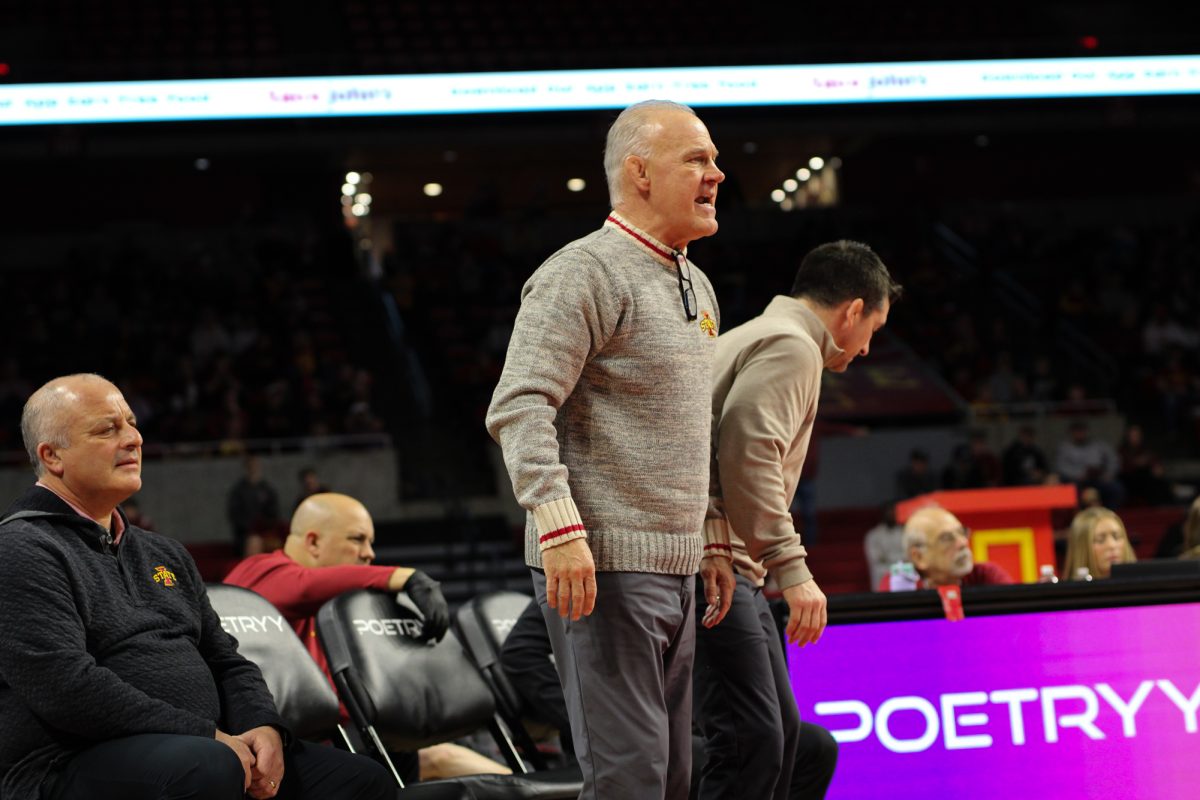Professors have different definitions for disruptive classroom behavior
September 4, 1998
It is the beginning of a new semester: a time for new books, new professors and new people chatting in the back balcony of every lecture.
According to an article in this week’s Des Moines Register by Thomas O’Donnell, some Iowa State professors “say they’ve seen a slow deterioration in respect, attentiveness and civility among some students.”
Professors have many different definitions of disruptive classroom behavior. Talking during a lecture, eating food during class or walking in late to a recitation can cause anything from indifference to indignity in instructors as well as fellow classmates.
“I think students are more disrespectful to each other than in the past,” said Kim Smith, professor of journalism and mass communication. “The key point about disruptive behavior is not so much that it annoys the instructor — students are not respecting each other when they talk during class.”
But not every faculty member agrees that student behavior at ISU is a problem. Professor of social psychology Gary Wells said if anything, student behavior during lectures has improved.
“It’s not generally my view that there’s any kind of change in attitude of students or in their civility,” he said, “I think what happens is that a lot of time professors forget how things used to be.”
Wells said professors in the 1960s had to deal with students smoking in class or sprawling out for a nap during lectures.
“In the late ’60s, if a professor stated some kind of conservative opinion, his class … protested, or people would boycott it,” he said.
Wells said that today, attention should only be focused on behavior that interferes with people’s ability to learn.
“If there are students who are talking and thereby disrupting some other students’ ability to listen to the professor, then there’s a problem,” he said.
Excessive talking during large lectures is a common complaint among professors and students.
Jennifer Rokes, junior in journalism and mass communication, said that in her introductory courses, she often witnessed students in the back talking during class.
“If you’re going to talk, go home,” she said.
Rokes said talking during class is primarily a problem in large lecture classes with high numbers of underclassmen.
“The majority of classes [where talking occurs] are lower-level classes. Freshmen just have to realize they’re not in high school anymore,” she said
Wells said he typically receives complaints about talking in course evaluations from only two or three students out of a lecture with an enrollment of 200 to 300, while instructors of smaller classes or recitation sections say they do not usually have problems with students talking.
“In a lab scenario, at a higher level, people usually want to be there, and they are more apt to pay attention,” said Jason Titcomb, a teaching assistant and graduate student in anthropology.
Mary Swander, professor of English, agreed that talking is not a problem in the smaller classes she instructs.
“Most of my students are very attentive, courteous and involved in class,” she said.
Swander said she felt the biggest disruption to her classes is students’ arriving late.
Smith also said that tardiness is a behavior he typically will not tolerate in either his small classes or lectures.
But Jason Taylor, senior in English, complained that often times tardiness is not the fault of students.
“I’ve had teachers who every morning will say you have to be on time to class,” he said, “but then they let you go late, which makes you late to your next class.”
Eating in class is another common occurrence in classrooms all over campus, but Wells said he did not find this issue to be a concern.
“My own personal opinion is that we’re all too busy not to be able to eat on the run. As long as students aren’t making noise and distracting others, I don’t think we have [a] problem,” he said.
Aaron McConeghey, senior in English education, said he was once reprimanded in class for chewing tobacco.
“A TA just walked up to me and said spitting in a bottle was disgusting,” he said. “But people were drinking pop in the class and she didn’t say anything. If you don’t like it, just don’t look at it.”
Smith said he was less offended by students eating during class than some other, more unusual, student behavior.
“The worst case of disruptive behavior I had was a couple who would constantly make out in the balcony [during] a large lecture,” Smith said. “I’d never really considered my lectures erotic.”
Wells referred to a student who was not wearing shoes during one of his lectures and said it did not bother him.
“How is someone not wearing shoes interfering with anyone else’s learning?” Wells asked. “If it’s not interfering with somebody else’s learning, I don’t care.”
When behavior is interrupting class, professors are typically willing to confront students. Smith said he is very blunt when dealing with inappropriate behavior and will stop his class to reprimand students.
Titcomb says he tries to point out potentially disruptive behavior early in the semester in hopes of curbing it.
While Smith called disruptive behavior by students “damn rude,” he added, “Almost all of my students are well-behaved.”






